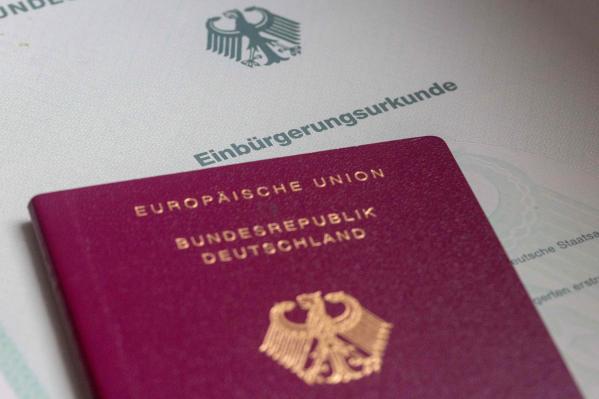More inclusion thanks to citizenship

Citizenship opens up new opportunities in Germany: German citizens can for example vote in elections Elections Every four years, the parties stand in the general elections to the Bundestag. Traditionally, the turn-out is high in Germany, and following a high in the 1970s, when the turn-out was over 90 percent, since reunification it has been around 80 percent. 76.6 per cent of eligible voters took part… Read more › at all political levels or indeed run for election themselves. A German passport also grants freedom of mobility within the European Union European Union In 1957, Germany was one of the six founding members of today’s EU, along with France, Italy, Belgium, the Netherlands and Luxembourg. The EU is currently made up of 27 states; the euro is the official currency in 20 of them. For Germany, European integration forms the basis for peace, security and… Read more › and allows many other countries even outside Europe to be visited without a visa. A number of conditions have to be met to obtain German citizenship, however.
One of the requirements for a person wishing to obtain a German passport is to pass a citizenship test. The questions in the test are about the legal and social system in Germany, and the way people live there. Additional criteria include:
- sufficient knowledge of the German language
- the absence of any criminal record
- a commitment to the “liberal democratic basic order of the Federal Republic of Germany”.
Anyone involved in antisemitic or racist activities will certainly not be granted a German passport. Citizenship is also out of the question for anyone who engages in polygamy or disregards equality.
In principle, a reform adopted in 2024 allows a person to hold not only German citizenship but also that of another country.
Which rules apply to children born in Germany?
Children who are born in Germany to foreign parents are automatically granted German citizenship and can keep the citizenship of their parents if at least one parent has been living lawfully in Germany for more than five years and has the right of permanent residence.
Which rules apply to the “guest worker generation”?
Anyone who came to West Germany as a guest worker or to the former East Germany as a contract worker only has to demonstrate oral German skills to obtain citizenship. Furthermore, people from these two groups no longer need to take a citizenship test. This is in recognition of their lifetime achievement. “Guest workers” were those immigrants who were invited to come to Germany, above all in the 1950s and 1960s, to address the labour shortage at the time. Many of them came from Turkey.


